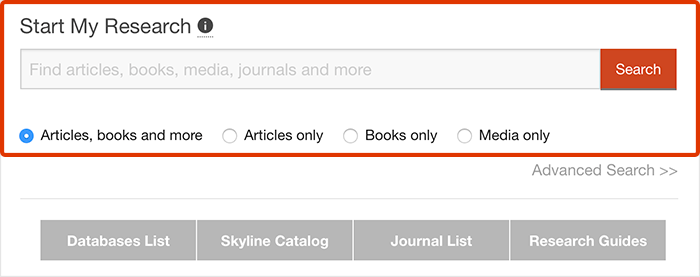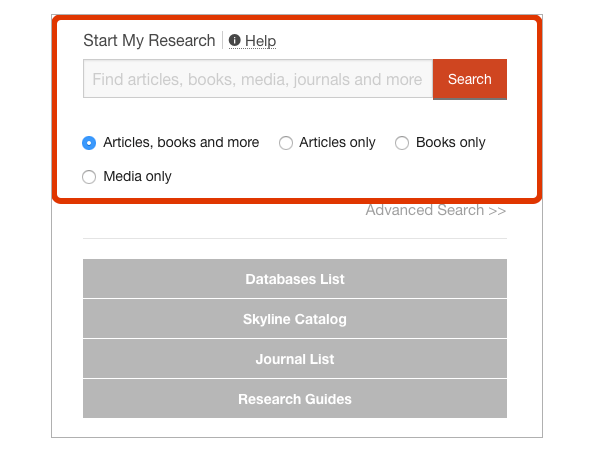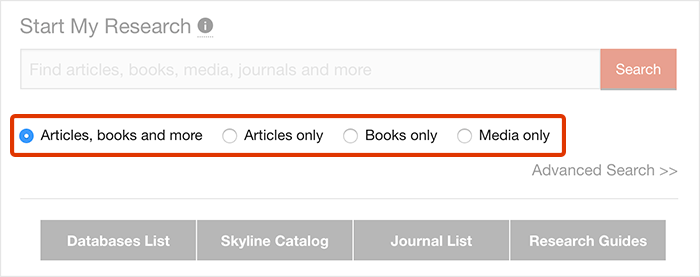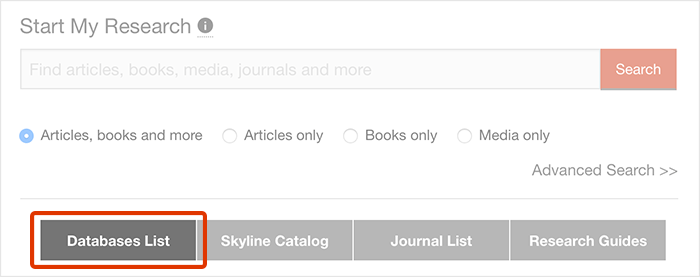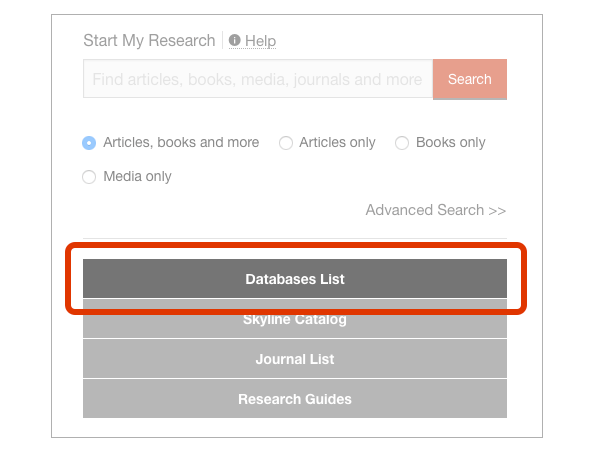What's On This Page:
Collection Development Vision and Values
The Auraria Library is committed to supporting the learning, teaching, research, and service missions of the University of Colorado Denver (CU Denver), Metropolitan State University of Denver (MSU Denver), and Community College of Denver (CCD) by providing students, faculty, administrators, and staff with the information, research, and educational resources they need to succeed. One way we do this is through a process called collection development. This involves reviewing, selecting, purchasing, evaluating, and removing, when necessary, library resources. We do this in accordance with the library's vision, mission, and values.
Our goal for collection development at Auraria Library is to create diverse, robust, and well-used print and online collections that reflect the needs, interests, and wishes of the campus community while ensuring users are introduced to diverse perspectives, histories, and ideas. Our collection is always evolving – it shifts and shapes in terms of size, content, format, and subject matter.
Diversity, Equity, and Inclusion (DEI) in Collection Development:
The Auraria Library recognizes the historical bias and privilege in its collections, which have mainly focused on works by white, Western, Christian, cis/heteronormative, able-bodied men, while excluding marginalized authors, artists, and publishers. To attempt to fix this, the library actively acquires and promotes content from historically oppressed and underrepresented people. It also considers material from smaller, independent, and local publishers, as well as self- published works.
The library realizes that its collection has not fully represented the diverse campus and global society, and thus commits to addressing these gaps by purchasing more diverse content. The library works to ensure the way it catalogs and describes materials supports visibility of voices that have been marginalized. The library is proactive in correcting outdated, biased, or offensive labels used for its collections.
The Auraria Library adheres to the ideals of diversity, equity, inclusion, and social justice outlined in the Association of College and Research Libraries' Diversity Standards: Cultural Competency for Academic Libraries. It also supports the principles of the American Library Association's Library Bill of Rights, which guide the selection of resources without prejudice or censorship. If there are any questions about whether something in the collection is appropriate, you can email cdl@auraria.edu.
Collection Priorities
Format Considerations
When choosing materials for the library, what matters most is the content, not the format. However, the format becomes important when different formats are available, or when a specific format makes information more accessible to users. Technical issues, like making sure an item works with the library's current equipment and systems, can also affect how we choose the format. The library usually prefers online formats (e.g., ebooks, streaming videos, online journals) when available as online formats are often more accessible to more users and can frequently be used by multiple people at the same time. The library will consider new formats if there is evidence that a significant portion of the community can effectively use them. Additionally, format decisions will be made in compliance with theAmericans with Disabilities Act (ADA).
General Criteria for Resources Selection
The primary factors we consider when selecting library resources are their relevancy to campus goals, teaching, learning, and research and their quality of content. Resources should directly support the current curriculum and research on campus as well as encouraging students' love of learning or helping them achieve their academic goals. The main language of the collection is English, and the library does purchase non-English language materials based on their relevance to Auraria campus programs. Specific considerations in choosing individual items include:
- anticipated demand,
- information accuracy and reliability,
- relevancy to campus teaching, learning, and research,
- timeliness or permanence of the material,
- strengths and weaknesses of our existing collection in the subject,
- cost and whether the cost is a one-time expense or ongoing,
- whether the resource supports diversity, equity, inclusion, and accessibility,
- accessibility of the resource,
- books written or edited by current Auraria campus faculty, and
- whether the resource provides access to full-text, abstracts, or bibliographic information.
Duplication of Formats
Typically, the library will not purchase the same information in multiple formats (e.g., the same book in print and online) but each resource will be evaluated individually. If a resource is available in multiple formats, the following criteria will be considered in making format decisions with online preferred:
- cost,
- how an item will be used,
- potential audience,
- ease of access,
- space requirements, and
- preservation considerations.
Requests
The Auraria Library encourages people to suggest resource recommendations through the Recommend a Purchase form. Recommendations can be for print or online resources. A librarian will assess the request and determine if the resource is a good fit for the collection based on availability of funds and space; relevancy to campus teaching, learning and research; obtainability; and accessibility. Recommendations with high costs are reviewed by an internal library committee to determine if the resource is a good fit for the collection and if funds are available.
Book requests are purchased using general book funds with specific amounts allocated to campus disciplines. Individuals with large book requests may be asked to prioritize their lists. Additionally, many popular films available on streaming platforms such as Netflix, Hulu, Amazon Prime, or Disney+ are not available for the library to purchase because these companies will not sell to academic libraries.
Exclusions
The Auraria Library does not purchase “true” textbooks, books introductory in nature with a new edition every few years, because they are often too expensive, are only needed temporarily, and are often not available online. However, if a textbook is seen as valuable for the long term, it might be considered.
To help faculty and students, the library encourages using alternative, open, and affordable classroom materials. The library's Open Educational Resources (OER) webpage provides strategies for finding such materials. Faculty are encouraged to replace expensive textbooks with affordable materials, OERs, or other open access (OA) materials.
Fun Reads
The Auraria Library's Fun Reads Collection has a selection of fiction and non-fiction books for recreational reading. The collection has a mix of popular and academic books. These books might be the latest trends, hot topics, or popular books. Many books have won awards, particularly awards related to diversity, equity, and inclusion (DEI). We review the Fun Reads Collection annually to remove lesser used items to make room for new books. If books are relevant to campus teaching, learning, or research or contribute to the library’s mission of diversity, equity, and inclusion, we may decide to retain the book long term.
Children's and Young Adult Literature
The Auraria Library purchases some children’s and young adult books. These books support the education programs at the three schools and cater to people who enjoy children's or young adult books. To be considered for purchase, a children's or young adult book must meet one of these three criteria:
- award winner, particularly awards given to or about historically marginalized peoples or a topic related to diversity, equity, inclusion, and accessibility;
- books challenged or banned; and/or
- books written by or about Colorado authors and illustrators.
For more information about the children’s and young adult literature collection, please contact cdl@auraria.edu.
Special and Digital Collections
The Auraria Library’s Special and Digital Collections houses a diverse collection of historic and current material and has separate collection development guidelines and policies. For more information about the collections, see the Special and Digital Collections webpage.
Collection Assessment and Removal
Removal of Print Materials
The Auraria Library ensures its collection stays relevant and up to date by regularly assessing and removing old or unnecessary materials. Over time, materials can become outdated, damaged, or underutilized. To keep a high-quality collection of academic and scholarly resources, materials undergo careful consideration for potential removal from the collection. Factors we consider when assessing items for removal include:
- usage,
- age,
- whether the resource supports diversity, equity, inclusion, and accessibility,
- relevancy to campus teaching, learning, and research,
- availability of newer and more relevant resources,
- cost,
- currency,
- condition,
- space requirements,
- format,
- availability of an item or related items from other libraries, and
- strategy of the overall collection.
Library employees are not allowed to receive personal benefits from any removal activities. Depending on the material type and condition, books removed from the collection are donated to No Store and resold.
Replacements
Library materials are occasionally lost, stolen, or damaged. When this happens, the library may replace these items. We assess the lost item using the same criteria when purchasing or removing an item before deciding to purchase a replacement. Users can ask for an item to be replaced.
Cancellation of Online Databases and Collections
The Auraria Library assesses its online resources throughout the year to determine whether to renew or cancel online resources, such as databases, journals, and ebook collections. Information reviewed when deciding to renew or cancel a subscription includes:
- cost and price history,
- use in recent years,
- campus need for, interest in, and opinion about the resource,
- whether and where a journal is indexed,
- accessibility of the resource, and
- ethical concerns related to the vendor.
Feedback from campus and library users is requested and reviewed when time allows. This feedback is reviewed by an internal library committee, and they decide whether to renew or remove the resource. If an online resource is cancelled, the campus is informed through multiple communication methods including the Database and Journal Cancellations webpage.
Vendors and Licensing Considerations
Before purchasing or renewing online resources, Auraria Library reviews the vendor’s license agreement to determine if it matches campus needs without contractually forcing acquisition of unwanted products, restricting fair use rights, or the values of academic inquiry. Our licensing priorities are designed to ensure our e-resources meet the needs of our users and adhere to the American Library Association (ALA) Code of Ethics. Resources that meet these considerations and other selection needs will be given priority over resources that do not.
Licensing Priorities & Principles
- Tri-Institutional Campus: Auraria Library will not license any product that does not allow access to all Auraria campus institutions (CU Denver, MSU Denver, and CCD).
- Walk-in Users: Resources must include access for walk-in users, so that anyone can use a resource if they are on library premises.
- IP Authentication: Access to electronic resources should be authenticated by IP address rather than requiring individual logins. Usernames and passwords are challenging to manage, provide an inferior access experience for patrons, and can compromise patron privacy.
- Privacy: Licenses must address the vendor’s protection of any data collected about individual users and their use of library resources. All personally identifiable information should be only kept in aggregated, anonymized form, and never shared with third parties or used for marketing purposes.
- ADA Compliance: Licenses should include language describing the vendor’s adherence to the current Section 508 guidelines of the Americans with Disabilities Act. Vendors should also provide a Voluntary Product Accessibility Template (VPAT) upon request and a timeline for resolving any criteria not in compliance.
- Interlibrary Loan (ILL): Licenses should allow for full ILL rights for applicable content. Requests should be able to be fulfilled electronically, and without geographic restrictions.
- Usage Statistics: Licenses should specify that the vendor provides usage statistics for the library to measure the usefulness of the content.
- Non-Disclosure Agreement (NDA): Licenses should not contain an NDA or confidentiality clause. As a publicly funded institution we have an obligation for transparency in our collections spending. Additionally, nondisclosure agreements contribute to anticompetitive conduct among library vendors and publishers.
- External Terms: Licenses should include language stating that the library’s license agreement completely supersedes, replaces, and supplants any external terms or policies on the vendor’s website.
- Pricing & Fees: License terms should be financially sustainable and pricing models must be transparent.
- Misuse & Compliance. Licenses should allow adequate time (minimum 30 days) to identify and resolve any misuse of content by a user. Under no circumstance should a license allow a vendor to monitor patrons’ use of electronic resources in the name of ensuring compliance with licensing terms.
Other preferred license terms for e-resource licenses include, but are not limited to:
- Perpetual Access Rights
- Archival Provisions
- Unlimited Simultaneous Users
- Inclusion in Learning Management Systems (LMS)
- Open Access Content
- Text & Data Mining Rights
- Alumni Access Rights
- No DRM (digital rights management)
Privacy Policy
Auraria Library is committed to supporting student success for all three institutions on the Auraria campus while also remaining deeply committed to the privacy of the students, faculty, staff, and community members we serve. Librarians are bound by our code of ethics to protect patron privacy and take that commitment seriously. For this reason, Auraria Library has a Privacy Statement which outlines how and when the library might collect data about users.
Learning Materials Budget
The Auraria Library receives money from the three schools on Auraria Campus – CU Denver, MSU Denver, and CCD. Each school's contribution is based on the number of full-time equivalent (FTE) students enrolled at the school.
The Learning Materials budget is used to purchase and subscribe to databases, journals, news sources, books, streaming media, DVDs, and other resources. Over 80% of the budget goes towards ongoing subscriptions. These subscriptions increase in price by about 5-6% each year. Due to flat and a sometimes decreasing Learning Materials budget the 5-6% increase in pricing for ongoing subscriptions requires us to cancel other subscriptions or purchases each year.
Partnerships
The Auraria Library partners with other libraries through library consortia which provide cooperative licensing to assist with the cost of library resources. Partnerships include Colorado Alliance of Research Libraries (The Alliance), the University of Colorado System, and the Colorado Library Consortium (CLiC). Participating in consortia helps Auraria Library receive better pricing, transformative agreements, more robust resource access, and physical material retention cost-savings, as well as cooperative collection development.
Marketing & Promotion of Collections
The Auraria Library works continually to promote our resources to users and potential users to ensure they are being used. Methods to promote the collection include:
- The Auraria Library works continually to promote our resources to users and potential users to ensure they are being used. Methods to promote the collection include:
- physical and online displays including curated monthly staff picks, featured databases, and new books lists;
- direct communication with users through emails and meetings;
- intentional promotion of resources through research consultations, chat questions, and Ask Us Desk interactions; and
- online newsletters, website highlights, email updates, and a social media presence.
Gifts and Donations
The Auraria Library welcomes gifts and donations that enhance the collection and support campus teaching, learning, and research. To ensure the best use of donations, we consider space limitations, processing costs, and the strength of our existing collection. Potential donors must submit a title list with the publication date and author to cdl@auraria.edu before bringing the items to the library. However, there are certain items we are unable to accept as donations, including:
- journals/magazines
- duplicates of resources already owned by the library
- outdated formats, such as VHS tapes, cassette tapes, or vinyl records
- sheet music
- mass market paperbacks
- advance reading copies or bound or unbound galleys
- outdated books, including textbooks in rapidly changing fields
- most government publications
- items in poor physical condition
- materials left at the library without pre-approval by a librarian
Any donated items falling under these categories will be discarded. For more details, see our Book and Media Donations webpage.
Future Collection Considerations
Academic libraries in the United States are constantly changing to meet the needs of students and the rapidly evolving landscape of higher education. Auraria Library understands the importance of a collection that can be evaluated and adjusted as needed for the Auraria campus. Our dedication to continuous review forms a fundamental cornerstone for all future collection development considerations.
Improving our collections relies on collaboration between the library and the Auraria campus institutions, which play a vital role in distributing future funding. The library strives to support new areas of development on campus, interdisciplinary connections, data-driven research, and a diverse global perspective representative of our students, staff, and faculty. However, we also work to balance well-established programs with new or emerging trends through annual budget evaluations.
We acknowledge that technology is changing how we access information, moving from print materials to online resources. A shift that we have not only embraced but also dedicated to advancing. Additionally, we recognize the rising popularity of innovative publishing methods and research support across higher education. The library is
Our goal is for the collections at Auraria Library to be able to adapt smoothly to changes in society and in academia, all while recognizing the realities of today.




